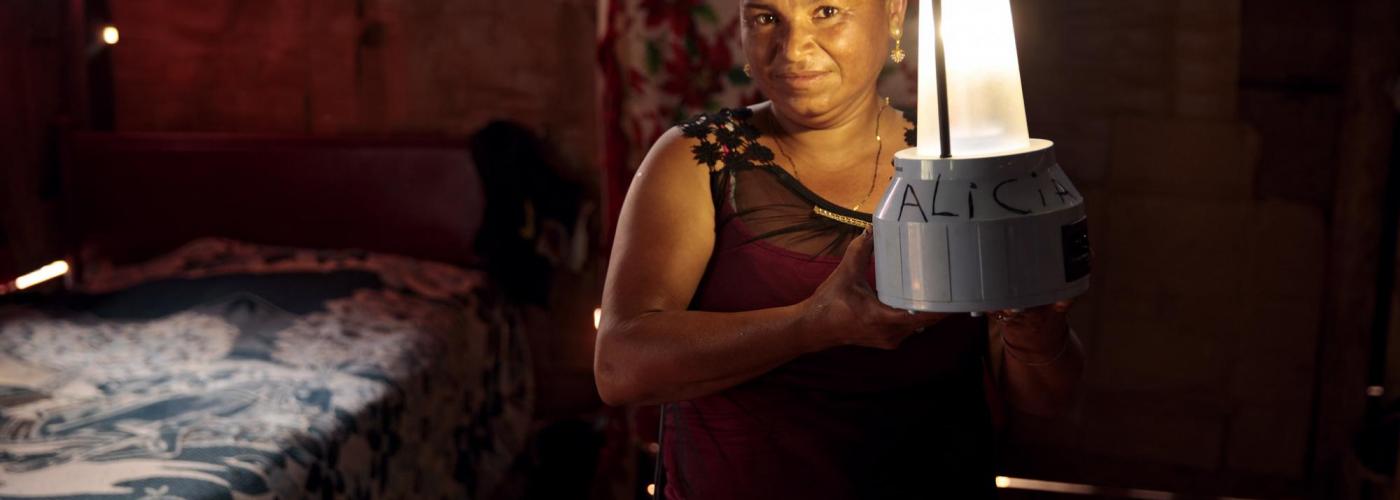Expanding Commercial Lending for Clean Energy in Central America
Image

Many domestic commercial banks in Central America have been reluctant to provide loans for clean energy companies and users due to high perceived risks and a limited understanding of relevant technologies, business models, and investment viability. Banks willing to consider clean energy lending often do not offer loan products with feasible terms, such as longer repayment periods, non-burdensome collateral requirements, or loans denominated in local currency. In addition, domestic commercial banks often lack experience in raising capital from multilateral development banks and funds, bilateral donors, and impact investors.
The USAID-funded Climate Economic Analysis for Development, Investment, and Resilience Activity (CEADIR) received support from the El Salvador, Central America, and Mexico Regional Mission (ECAM) to promote clean energy lending by commercial banks in El Salvador, Guatemala, Honduras, and Panama. As a result, seven banks in the ECAM region have developed or enhanced energy efficiency and green credit lines for small- and medium-sized businesses.
CEADIR began its work by preparing national assessments of clean energy lending in the four countries. The project then trained 1,272 staff of 12 banks between October 2015 and December 2017 on clean energy lending, emphasizing gender equality through ensuring that half of the bank staff trained were women. The trainings were based on the Clean Energy Lending Toolkit prepared under the prior USAID-funded Analysis for Investments in Low-Emissions Growth (AILEG) Activity. CEADIR then translated the toolkit into Spanish and French and additionally developed several tools, such as energy audits and checklists, to help bank staff quickly assess the feasibility of different types of projects.
Following this assistance, in 2018, Banco Promerica in Guatemala launched a new loan product for clean energy, and Banco Hipotecario in El Salvador began offering energy efficiency and renewable energy loans. Banco Hipotecario provided particularly favorable terms for two recipients of the National Energy Commission’s 2018 energy efficiency prize. This bank noted that:
“The support provided by CEADIR has been extremely valuable since it has enabled us to adjust our Green Credit Line for small and medium enterprises based on the needs of existing and potential clients.…The training and technical assistance provided by CEADIR strengthened [our] institutional capacity to evaluate and finance renewable energy and energy efficiency projects, which are perceived as increasingly important business opportunities in El Salvador.”
CEADIR helped three other banks in El Salvador complete five energy audits for client firms exploring energy efficiency or solar energy technologies to reduce the costs of grid electricity or problems resulting from frequent voltage variations. These audits found the firms could reduce their annual electricity consumption by as much as 64 percent through energy efficiency measures and installation of solar photovoltaic panels.
In Guatemala, CEADIR helped Grupo Financiera de Occidente evaluate options to restructure an existing loan for a hydropower project. An executive of the bank said, “Through the training provided by CEADIR, various members of our team were able to expand their knowledge on technical and financial aspects of renewable energy projects.”
Between December 2017 and March 2018, CEADIR applied a similar bank training model in eight West African countries with Power Africa funding provided by USAID’s West Africa Regional Mission.
CEADIR is implemented by Crown Agents-USA and Abt Associates. The activity receives core funding from the USAID/Washington Economic, Growth, Education, and Environment Bureau (E3). It is managed by the Economic Policy and Global Climate Change offices.
Authors:
Santiago Enriquez is an Environmental and Climate Change Specialist at Abt Associates. He is the Country Manager for CEADIR in ECAM mission. Mr. Enriquez has 18 years of experience working in clean energy, climate change, environmental, and natural resource management. Before joining Abt, Mr. Enriquez worked for the World Bank and for Mexico’s Secretary of Environment and Natural Resources. Mr. Enriquez holds a Master’s in Public Policy from Harvard University and a B.A. in International Relations from the Instituto Tecnológico Autónomo de México.
Dr. Eric L. Hyman is an Economist in the Economic Policy Office of the USAID Economic Growth, Education, and Environment Bureau. He is the contracting officer's representative for the CEADIR Activity. He has 38 years of experience in natural resource economics, project design, monitoring and evaluation, cost-benefit analysis, environmental and social impact assessment, small- and micro-enterprise development and finance, and private and public sector capacity development. He holds a Ph.D. and M.R.P. in Environmental Planning from the University of North Carolina at Chapel Hill and a B.A. in Economics and Environmental Science from the University of Virginia at Charlottesville.


